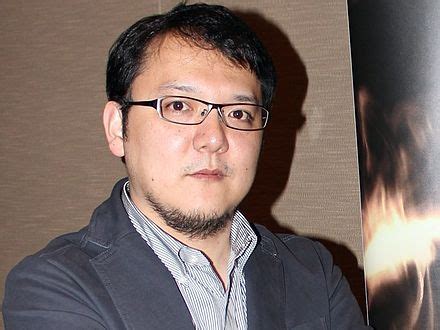A Quote by Hidetaka Miyazaki
If the number of easy games is increasing nowadays, I guess it is because difficulty is not related to interesting and worthwhile game elements in many games among players.
Quote Topics
Related Quotes
Selling five million units in less than 14 months means DS is the fastest among any game machines ever launched in Japan to hit that level. To achieve this rapid growth, we were required not only to go after frequent game players, but to reel back people who had left games and to make video games enjoyable for those who had not played games at all.
All experiments that are related to the games when you have humans versus machines in the games - whether it's chess or "Go" or any other game - machines will prevail not because they can solve the game. Chess is mathematically unsolvable. But at the end of the day, the machine doesn't have to solve the game. The machine has to win the game. And to win the game, it just has to make fewer mistakes than humans. Which is not that difficult since humans are humans and vulnerable, and we don't have the same steady hand as the computer.
It is relatively easy... to determine whether or not a blow to a quarterback was deemed excessive or incidental. So I'm discouraged that there have been a number of games that are influenced - not that the outcomes are in question - but a number of games influenced based on the protection of the quarterback.
In tournaments, players typically raise when they enter the pot. In cash games, though, players are more likely to limp in before the flop. That's because cash games are usually deeper-stacked, meaning that players will have a higher ratio of chips in relation to the blinds than they would in a tournament.
I do not think novels are necessarily more worthwhile than games. A novel can be a trivial waste of time, and a game can teach. Whatever the genre, I think a successful narrative allows us to participate, to try on new roles and points of view. At their best, novels and games serve as vehicles for discovery.





































